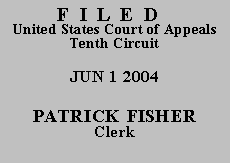

| UNITED STATES OF AMERICA, |
|
| v. | |
| JUAN BARAJAS-RAMIREZ,
aka Juan Salvador Gaviota, aka Jose Gomez Lopez, aka Jesus Garcia, |
Juan Barajas-Ramirez pled guilty to illegal reentry into the United States following deportation, in violation of 8 U.S.C. § 1326. He was sentenced to twenty-four months' imprisonment, followed by three years of supervised release. He appeals his sentence, arguing that his base offense level should not have been increased twelve levels based on a prior felony drug conviction that took place sixteen years earlier, and that he received ineffective assistance of counsel.
Mr. Barajas-Ramirez's appointed counsel has filed a brief pursuant to Anders v. California, 386 U.S. 738 (1967), advising this court that, "after a conscientious examination" of his client's case, he has found this appeal to be "wholly frivolous." Id. at 744. After carefully reviewing the record, we agree with Mr. Barajas-Ramirez's counsel that this appeal presents no non-frivolous issues. We therefore affirm Mr. Barajas-Ramirez's sentence.
The undisputed facts as set forth in the U.S. Probation Office's presentence report ("PSR") indicate that Mr. Barajas-Ramirez was arrested on May 16, 2003, as a result of various traffic offenses. A subsequent background check based on Mr. Barajas-Ramirez's fingerprints revealed that he had been deported on January 23, 1997, following a conviction for misappropriation of music, and that he had twice previously, in 1985 and 1987, been convicted in California state court of selling marijuana, a felony, for which he received sentences of less than thirteen months.
Accordingly, the PSR set Mr. Barajas-Ramirez's base offense level at 8, pursuant to United States Sentencing Commission, Guidelines Manual ("USSG"), §2L1.2(a) (Nov. 2002) (unlawfully entering the United States). The PSR increased the base offense level by 12 levels, pursuant to USSG §2L1.2(b)(1)(B) (prior deportation following a conviction for a felony drug trafficking offense for which the sentence imposed was thirteen months or less). The PSR then subtracted 3 levels for acceptance of responsibility, pursuant to USSG §3E1.1, yielding a total offense level of 17.
The PSR indicated Mr. Barajas-Ramirez had only one prior sentence in the past ten years, giving him one criminal history point pursuant to USSG §4A1.1(e) and yielding a criminal history category of I pursuant to USSG §5A. The resulting guideline range was 24-30 months. Mr. Barajas-Ramirez did not object to the PSR's recommendations, nor did he request a downward departure, though he did state that he had not "even committed a misdemeanor" for the past sixteen years, following the birth of his son, and requested "an exception to deportation so that I could take care of some things that my son needs." Tr. of Sentencing Hr'g at 6, R. Vol. III. The district court adopted the PSR and imposed a sentence at the low end of the range.
"We review a district court's interpretation of the Sentencing Guidelines de novo, and its factual findings for clear error, giving due deference to the district court's application of the guidelines to the facts." United States v. Brown, 314 F.3d 1216, 1222 (10th Cir. 2003). Here, we discern no basis for challenging the district court's calculation of Mr. Barajas-Ramirez's offense level or criminal history category under the Sentencing Guidelines. As the Second Circuit recognized in a similar context, "[t]he Sentencing Guidelines provide no time limit on the prior federal and state convictions that may be used to trigger a sentence enhancement." United States v. Stultz, 356 F.3d 261, 268 (2d Cir. 2004). We have held, moreover, that a district court does not err by considering all prior convictions, and not only the conviction immediately preceding a defendant's deportation, when imposing a sentence under 8 U.S.C. § 1326(b). United States v. Soto-Ornelas, 312 F.3d 1167, 1171 (10th Cir. 2002).
We further note that "[i]neffective assistance of counsel claims should be brought in collateral proceedings, not on direct appeal." United States v. Galloway, 56 F.3d 1239, 1240 (10th Cir. 1995) (en banc).
The district court's sentence is therefore AFFIRMED.
ENTERED FOR THE COURT
Stephen H. Anderson
Circuit Judge
*.This order and judgment is not binding precedent, except under the doctrines of law of the case, res judicata, and collateral estoppel. The court generally disfavors the citation of orders and judgments; nevertheless, an order and judgment may be cited under the terms and conditions of 10th Cir. R. 36.3.